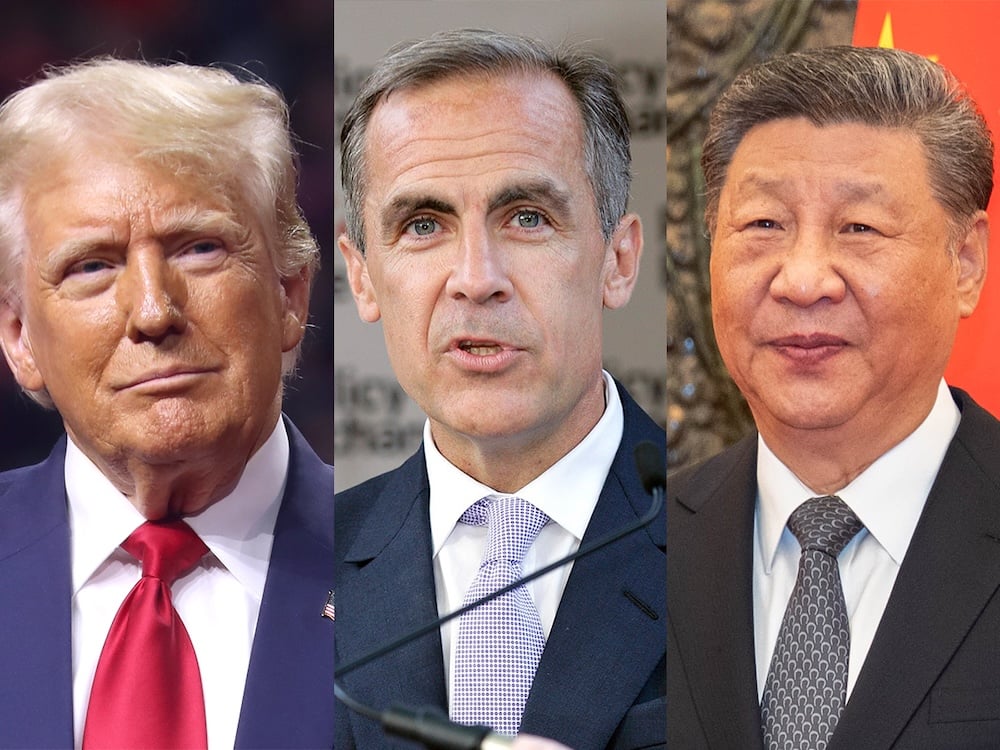Top Stories
U.S. War Department Invests Over $35 Million in BC Mining Firm

The U.S. Department of Defense has announced a significant investment in the Canadian mining sector, acquiring a 10 percent stake in Vancouver-based Trilogy Metals. This deal, valued at over $35 million, aims to develop a 2,000-square-kilometre mineral deposit in northern Alaska, underscoring the U.S. government’s focus on securing critical minerals for national security and energy needs.
Trilogy Metals’ president and CEO, Tony Giardini, emphasized the strategic importance of this investment, stating that it highlights the Upper Kobuk Mineral Projects’ role in supporting U.S. energy, technology, and national security priorities. Following the announcement, Trilogy’s stock value experienced a surge, tripling in response to the news.
This is not the first instance of U.S. government investments in British Columbia mining companies. On October 1, the U.S. Department of Energy acquired a 5 percent stake in Vancouver-based Lithium Americas, along with a similar stake in its Thacker Pass lithium mine located in Nevada. Earlier this year, the Pentagon also made headlines by investing in Las Vegas-based MP Materials, the only operational rare earth elements mine in the United States.
Investment in critical minerals is becoming increasingly important as geopolitical tensions and trade wars escalate, particularly with China, which dominates the global critical minerals market. The country produces approximately 90 percent of all rare earth elements and has been limiting exports to the United States. As a result, U.S. policymakers are aggressively seeking alternative sources, leading to investments in domestic and allied mining companies.
According to Werner Antweiler, an associate professor at the University of British Columbia’s Sauder School of Business, direct government investment in companies is relatively rare. He noted that governments typically support industries through loans or guarantees rather than equity ownership. Antweiler explained that while it is not uncommon for governments to invest in sectors deemed vital, direct ownership is less frequent in Western nations.
The current investments by the U.S. government focus on critical minerals essential for technologies ranging from electric vehicle batteries to military equipment. These materials are vital for the production of F-35 fighter jets and other military hardware. The increase in military spending, which reached an unprecedented $2.7 trillion last year, is indicative of a global shift toward prioritizing military preparedness over other expenditures, including humanitarian efforts.
In Canada, the government is also amplifying its focus on critical minerals. Recently, it launched the Critical Minerals Infrastructure Fund, allocating up to $1.5 billion to support this sector. Additionally, the federal government has announced $50 million for critical minerals developers to enhance energy security and reduce reliance on authoritarian regimes.
Mark Tory, president and CEO of Defense Metals, is leading efforts to develop the Wicheeda project, which is recognized as one of the richest rare earth deposits globally. The project has garnered attention for its potential to supply essential materials used in both renewable energy technologies and military applications.
Tory expressed optimism about the support from both the Canadian and U.S. governments, mentioning ongoing discussions to secure funding and partnerships. The project aims to enter the environmental assessment process in early 2026, with hopes that provincial support will streamline permitting processes.
Despite the potential benefits of increased investment in critical minerals, concerns about the ethical implications of these resources persist. Critics argue that the lack of transparency in the supply chain raises questions about whether materials sourced in Canada are being used for peaceful purposes or military applications. Nikki Skuce, co-chair of the BC Mining Law Reform network, highlighted the need for accountability in tracking the end use of critical minerals.
The evolving landscape of mining investments in Canada has raised eyebrows among experts. Antweiler noted that while these investments do not provide the U.S. with controlling interests, they could signify concerning trends in Canada-U.S. relations, especially given the current geopolitical climate.
As the U.S. government continues to secure stakes in critical minerals companies, the implications for both national security and the environment remain a topic of discussion. The ongoing investments reflect a broader strategy to bolster domestic capabilities while navigating complex international dynamics.
-

 Science3 months ago
Science3 months agoToyoake City Proposes Daily Two-Hour Smartphone Use Limit
-

 Health4 months ago
Health4 months agoB.C. Review Reveals Urgent Need for Rare-Disease Drug Reforms
-

 Top Stories4 months ago
Top Stories4 months agoPedestrian Fatally Injured in Esquimalt Collision on August 14
-

 Technology3 months ago
Technology3 months agoDark Adventure Game “Bye Sweet Carole” Set for October Release
-

 World3 months ago
World3 months agoJimmy Lai’s Defense Challenges Charges Under National Security Law
-

 Lifestyle4 months ago
Lifestyle4 months agoVictoria’s Pop-Up Shop Shines Light on B.C.’s Wolf Cull
-

 Technology3 months ago
Technology3 months agoKonami Revives Iconic Metal Gear Solid Delta Ahead of Release
-

 Technology3 months ago
Technology3 months agoApple Expands Self-Service Repair Program to Canada
-

 Technology3 months ago
Technology3 months agoSnapmaker U1 Color 3D Printer Redefines Speed and Sustainability
-

 Technology3 months ago
Technology3 months agoAION Folding Knife: Redefining EDC Design with Premium Materials
-

 Technology4 months ago
Technology4 months agoSolve Today’s Wordle Challenge: Hints and Answer for August 19
-

 Business4 months ago
Business4 months agoGordon Murray Automotive Unveils S1 LM and Le Mans GTR at Monterey









